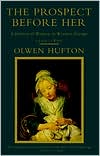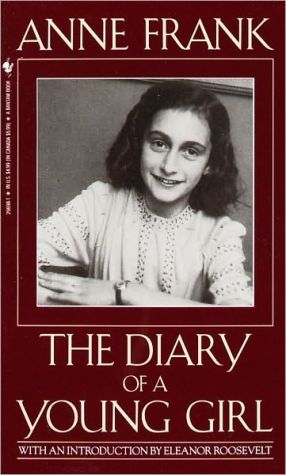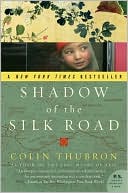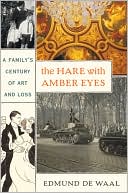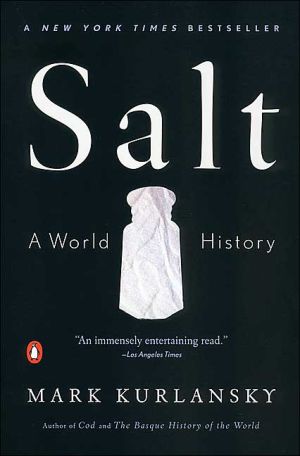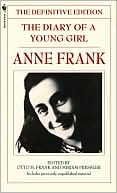Prospect Before Her: A History of Women in Western Europe, 1500 - 1800
How did women in 16th century western Europe cope with the consequences of being considered inherently sinful--as well as being legally and economically subordinate to their fathers, husbands, brothers, and sons? What might become of a woman unable to raise a dowry? What were the difficulties faced by spinsters, single mothers, and widows? In this brilliant investigation into the lives of women from all social strata, Hufton leads us from poor-house to palazzo, from cradle to grave,...
Search in google:
How did women in 16th century western Europe cope with the consequences of being considered inherently sinful--as well as being legally and economically subordinate to their fathers, husbands, brothers, and sons? What might become of a woman unable to raise a dowry? What were the difficulties faced by spinsters, single mothers, and widows? In this brilliant investigation into the lives of women from all social strata, Hufton leads us from poor-house to palazzo, from cradle to grave, illuminating what it meant to be female in western Europe during the years 1500 to 1800. Publishers Weekly Combining meticulous scholarship and elegant prose, this immensely rewarding history restores women to their key role in the birth of modern Europe. Defined by family status and limited job potential, condemned as lustful sinners or born hysterics by Church authorities and male doctors, ostracized and persecuted as witches, women nevertheless confounded patriarchal strictures and stereotypes. They farmed, midwived, joined urban workshops, sold goods in markets and on quays, worked at home in cottage industry, ran day-schools for children of working parents. Women in England, France, Germany and Holland took part in bread riots, political protests, rebellions, religious riots. Many women went to court seeking separation, divorce, protection from (or the incarceration of) abusive or drunken spouses. Drawing on women's diaries and memoirs, medical and theological tracts, advice manuals and legal documents, Hufton has unearthed a wealth of information on marriage, divorce, parenting, the Inquisition (between one-third and half of its victims in Spain and Portugal were women), infanticide, rape, prostitution, women writers and religious leaders. She traces the roots of modern feminism from Renaissance Venice, where nun Arcangela Tarabotti attacked the dowry system and men's greed, to the radical women's groups of the French Revolution and English polemicist Mary Wollstonecraft's fiery appeals for women's rights. Illustrated. (Nov.)
\ Publishers Weekly - Publisher's Weekly\ Combining meticulous scholarship and elegant prose, this immensely rewarding history restores women to their key role in the birth of modern Europe. Defined by family status and limited job potential, condemned as lustful sinners or born hysterics by Church authorities and male doctors, ostracized and persecuted as witches, women nevertheless confounded patriarchal strictures and stereotypes. They farmed, midwived, joined urban workshops, sold goods in markets and on quays, worked at home in cottage industry, ran day-schools for children of working parents. Women in England, France, Germany and Holland took part in bread riots, political protests, rebellions, religious riots. Many women went to court seeking separation, divorce, protection from (or the incarceration of) abusive or drunken spouses. Drawing on women's diaries and memoirs, medical and theological tracts, advice manuals and legal documents, Hufton has unearthed a wealth of information on marriage, divorce, parenting, the Inquisition (between one-third and half of its victims in Spain and Portugal were women), infanticide, rape, prostitution, women writers and religious leaders. She traces the roots of modern feminism from Renaissance Venice, where nun Arcangela Tarabotti attacked the dowry system and men's greed, to the radical women's groups of the French Revolution and English polemicist Mary Wollstonecraft's fiery appeals for women's rights. Illustrated. (Nov.)\ \ \ \ \ Library JournalHufton, one of the pioneers of women's studies and a highly respected historian, here investigates the prospects of a female child in the period 1500-1800, including marriage, spinsterhood, widowhood, or single motherhood, with such "careers" as silk worker, sausage maker, wet nurse, and prostitute. By 1800, women were beginning to protest the constraints on their lives. (LJ 11/15/96) Copyright 1999 Cahners Business Information.\ \ \ Library JournalIn this social history of modern European women, Hufton (history, European University Inst. in Florence), the architect of the women's studies program at Harvard University, employs Fernand Braudel's social and economic theories to examine women's everyday lives and illuminate how notions of gender have changed. By focusing on material culture, Hufton views women in the context of agriculture, medicine, marriage, motherhood, and widowhood and as witches, prostitutes, and mistresses. The concluding bibliographic essay is exceptionally comprehensive. Like Hufton's work, Bonnie S. Anderson and Judith P. Zinsser's A History of Their Own (HarperCollins, 1988) is thematic, identifying commonalties across time and class. In addition, the five-volume collation A History of Women in the West (Harvard Univ., 1992-94) pieces together women's lives through art, philosophy, politics, and social customs in specific historical periods. For a straightforward overview, however, Hufton's work is much more accessible to all audiences and invaluable to the scholar.-Jenny Presnell, Miami Univ. Libs., Oxford, Ohio\ \ \ \ \ New York Times Book Review"A major effort at synthesis...Ms. Hufton has a keen eye for the extraordinary interest in ordinary detail."\ \ \ \ \ Of Books New York Review"A considerable feat ... Hufton ranges confidentlly through the centuries."\ \ \ \ \ The Observer (London)"Magnificent. One of the most important works of history since the Second World War."\ \
